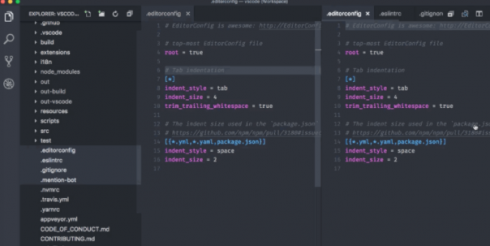
The January 2018 release of Visual Studio Code has arrived. New features include Explorer multi-selection, improved Settings search, errors and warnings in Explorer, and Git submodule support. A full list of features can be found on the release page.
Preview features that are not ready to be released yet includes support for language packs and UX designs for notifications.
Qt Creator 4.6 beta is announced
Qt has announced the release of Qt Creator 4.6 Beta. According to the company, the most notable change is the upgrade of the backend for the Clang code model from Clang 3.9 to Clang 5.0, which enables support for a lot of C++ features not available in Clang 3.9. The release also adds three additional filters to Locator and a big update to the model editor, now supporting text alignment and multi-line object names.
Google releases data on its Vulnerability Reward Program in 2017
Google has released information about the results of the Vulnerability Reward Program from 2017. It issued almost $3 million dollars in rewards for reporting security issues. Through the Vulnerability Research Grants Program, the company issued $125,000 to more than 50 security researchers. As a part of the Patch Rewards Program, it awarded $50,000 to the researchers.
Highlights of found vulnerabilities include an exploit chain on Pixel devices, a chain of bugs that allowed remote code execution in Chrome OS guest mode, and the discovery that anyone could gain access to internal Google Issue Tracker data.
Transporter can now be used to upload app previews to iTunes Connect
Apple has announced that developers can now use Transporter to upload app previews to iTunes Connect. Transporter is Apple’s command-line delivery tool that integrates with content management systems. This allows developers to deliver app metadata in bulk via XML, which is beneficial when adding and managing multiple localizations, the company said.
MapR Expansion Pack 4.1 is announced
MapR has announced the availability of the MapR Expansion Pack (MEP) 4.1, which allow data scientists to create scalable deep learning pipelines and make operational data available instantly. The new update boasts a 2X performance improvement across a variety of queries. This update adds new features to MapR-DB, MapR Data Science Refinery, and Apache Drill 1.12 as well.
“We are focused on enabling a variety of users to be productive on MapR on both development and deployment, allowing them to leverage all data effortlessly regardless of the data’s location on prem, in the cloud or at the edge,” said Neeraja Rentachintala, senior director of database and analytics at MapR. “The latest release of the MapR Expansion Pack gives the data scientist community an option to use their language of choice, Python, for high-performance data analysis on operational data, defining real-time workflows to read/write data into MapR database, and pain free deployment by simplifying the Python library distribution across the cluster.”






